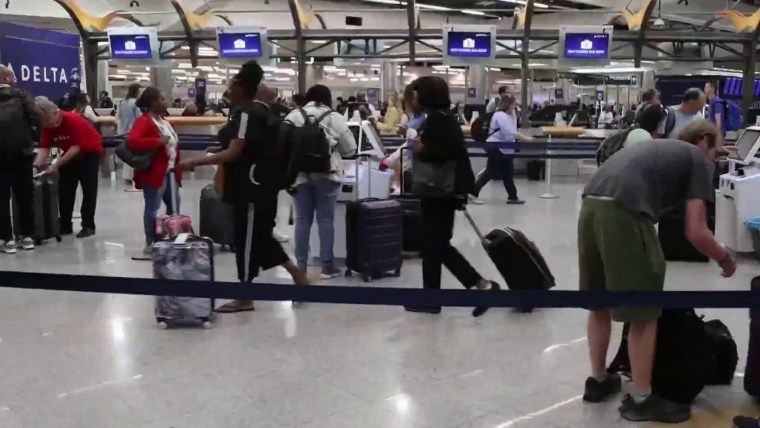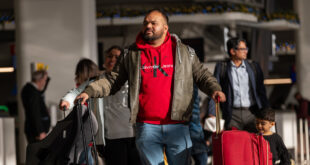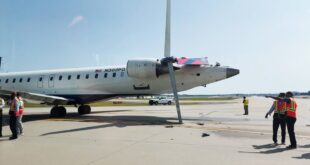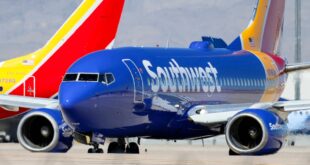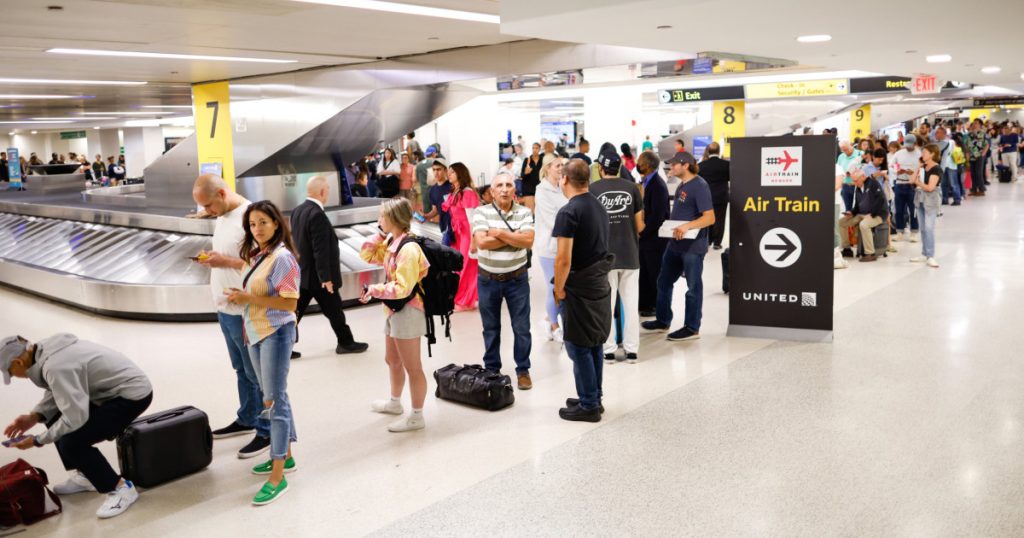
The feared repeat of last year’s summer travel woes began to materialize this week, with thousands of flights delayed or canceled amid inclement weather and staffing shortages.
The troubles began last weekend, with nearly 2,000 U.S. flights canceled according to FlightAware. Disruptions continued into Monday, when more than 11,000 U.S. flights were delayed or canceled. At least 7,300 were impacted Tuesday.
By Wednesday, the delays and cancellations had begun to level off to about 2,000 U.S. flights, according to FlightAware.
The delays come as the U.S. faces an going shortage of air traffic controllers. It’s an issue that United Airlines CEO Scott Kirby highlighted in a letter to employees Monday as he explained why flyers should expect more headaches in the coming weeks.
“I’m … frustrated that the FAA frankly failed us this weekend,” Kirby said, adding he estimated more than 150,000 United customers had experienced disruptions “because of FAA staffing issues and their ability to manage traffic.”
An FAA spokesperson said, “We will always collaborate with anyone seriously willing to join us to solve a problem.”
The shortages are unlikely to be resolved quickly, said Zach Griff at The Points Guy travel website. Staffing problems are also likely to be compounded by a number of issues.
“When thunderstorms hit, it’s up to controllers to recalibrate the air network, and it’s taking longer because they’re understaffed,” Griff said. “And some of that staff are not the experienced types who’ve been through this before. This is not something that can be solved overnight.”
Griff said it is somewhat unusual for storm activity to linger in the way it has in recent days over the Northeast, and current weather forecasts suggest more storms for the area are likely this weekend. The situation could also be compounded by ongoing visibility issues caused by smoke emanating from wildfires in Canada.
The travel year had started off relatively smoothly until the most recent troubles, said Kathleen Bangs, spokesperson for FlightAware. But she said she’d be surprised if the summer travel blues did not linger, especially in the Northeast, where air traffic controller shortages are most acute.
“It would be a pleasant surprise if we don’t continue to see bottleneck traffic,” she said.
Tips for rebooking a flight
To avoid being trapped in an endless line to rebook at your airline’s terminal, get on the internet immediately and start looking for alternative forms of travel. Experts say Google’s flight search option is the best bet for finding the most up-to-date choices when it comes to getting a new flight, which are also searchable by a number of criteria, including price.
If you’re strapped for cash and are looking to rebook, you’ll still want to attempt to call the airline before or as you wait in line with an in-person rebooking agent. Of note: Not all major airlines have rebooking agreements with other carriers. The ones that do are: Alaska, American, Delta, Hawaiian, JetBlue, and United. That ones that do not are: Allegiant, Frontier, Southwest, and Spirit.
Unfortunately, you have few rights if your flight is delayed or canceled for reasons outside of an airline’s control
According to the U.S. Department of Transportation website, only factors like maintenance or crew problems, cabin cleaning, baggage loading, and fueling count as within an airline’s control.
If your flight was delayed for longer than three hours, or canceled, for any of those reasons, you are entitled to a meal or meal cash/voucher, and, with the exception of Frontier Airlines, are entitled to complimentary hotel accommodations and complimentary ground transport to and from a hotel for an overnight cancellation situation. Click here for more.
If your flight is delayed for any other reason, like weather, you are not entitled to any compensation or refund.
What your rights are if your flight was significantly delayed canceled
In this situation, you are only entitled to a refund if you don’t take an offer to be rebooked on another flight. That also means you don’t have to accept an airline’s offer of a voucher. According to the U.S. Department of Transportation: “If an airline cancels a passenger’s flight or makes a significant change in the flight, regardless of the reason, airlines are required to provide a prompt refund to a ticketed passenger, including those with non-refundable tickets, should the passenger choose not to accept the alternative offered, such as rebooking on another flight.”

 Latest Breaking News Online News Portal
Latest Breaking News Online News Portal

